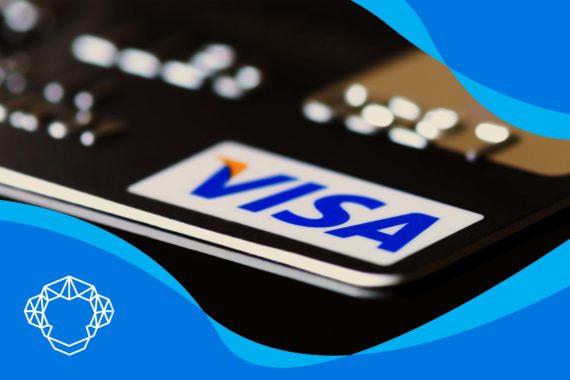As a business owner, you’ll have a ton of obligations and could potentially experience the unpleasant PCI non-compliance fee. Follow our article if you want to find out how to keep up with DSS standards and avoid unnecessary expenses and potential lawsuits risk.
What Does PCI-DSS Stand For?
If you’re a new business owner, you might be thinking about credit card transaction fees and wondering what does PCI mean? PCI-DSS stands for Payment Card Industry Data Security Standards. It is a set of rules and standards regarding the security and protection of plastic-money and its owner’s data from hackers or other criminals. Any merchant or a business owner who takes credit card payments should strive for PCI compliance. These standards are managed and developed by the PCI Security Standards Council (SSC). As a part of the process, merchants are required to fill out the Self-Assessment Questionnaire (SAQ) every year.
What Is PCI Compliance Fee?
When merchants start accepting payments in plastic, they have to start the whole process by applying for a merchant account. Depending on the merchant processing company, your PCI compliance fee will be handled in different ways. Some charge on an annual basis, some on monthly, and there are even ones who will charge quarterly. Even though your provider will ensure all the technical aspects of the process, you must complete SAQ and stay updated regularly. Whenever you don’t understand something about this process or want more information, you should contact your credit card processing services provider. This service’s ultimate goal is to protect both you as a merchant and your customers, the cardholders.

What Is PCI Non-Compliance Fee?
Have you been asking yourself this question—what happens if I am not PCI compliant? Unfortunately, some processors will charge businesses even if they are not PCI-DSS compliant. People in the sales will justify the fine as a penalty charged by MasterCard and Visa. However, this is not necessarily true because these brands do not charge processors or businesses. Yet, these brands might impose a certain fine if the non-compliance causes security issues. The sum of such a penalty could be pretty large. On the other hand, the non-compliance fee is smaller, and the revenue goes directly to processors’ hands.
Non-Compliance Fees Versus Compliance Fees
Non-compliance fees are more extensive than complying ones and do not cover the cost of your processors’ assistance that could quickly help you become compliant. Both non-compliance and compliance expenses could be charged either per month or per year. Yet, your non-compliance cost will be typically charged only when you aren’t compliant. To sum it up: you should focus on maintaining your compliance to avoid unnecessary and pesky non-compliance fees.
How to Determine If You Are Compliant?
To figure this out, you should turn to the Self-Assessment Questionnaire and fill the form. The yes and no questions will tell if you have to make some changes to become compliant. Remember to avoid mistakes business owners make and find the right version of the questionnaire based on your business and niche type. Also, be sure to look out for both compliance and non-compliance fees on your merchant statement account for the same period. Remember that paying for non-compliance won’t help your attempt to get your business up to standards. These fees are a real financial nightmare for merchants.

Non-Compliance Costs Are Set Individually
Each merchant services provider chooses whether the non-compliance will come with expenses or will be free of charge. The amount of costs also depends on your provider. The non-compliance costs will usually be around $20 per month. However, keep in mind that this can be as high as $100.

How to Avoid Non-Compliance Fees for a Small Business
If you want to find the best credit card processing for small business and avoid non-compliance costs, remember the Self-Assessment Questionnaire. You are required to refer to this once a year and fill out the questionnaire with yes and no answers. You must leave the necessary identifying information about yourself, like what type of payments you are taking or what kind of services you offer. Some processors will assist when filling out the questionnaire, and some will even do the whole job for you.
What is The Best Way to Get Rid of Non-Compliance Costs
The sole purpose of the non-compliance costs is to encourage you to become compliant. If you see a non-compliance expense, you should contact your provider. However, you’ll still be charged until you become compliant. We have already mentioned above what retail businesses should do. In eCommerce businesses, merchants must take both the questionnaire and submit evidence of network scans. If you are new to the eCommerce payment options, let this not scare you. The whole process is not as painful as it might sound.
Should I Cancel My Credit Card Processor?
We would recommend you not to because these services will definitely help with credit card fraud prevention. When searching for a processor, you should check both merchant service rates and what they can offer to help you comply with DSS.

Find the Right Payment Processor to Help You Maintain Your PCI-Compliant Account
And we have concluded that the PCI non-compliance fee can definitely be avoided. You only need to choose the right payment processor to assist with all the necessary information and meet your company’s needs. When searching for the right provider, you should analyze their PCI-compliance approach before signing up for their account. With a reliable processor, you’ll understand how credit card processing works and maintain PCI-compliant requirements.







